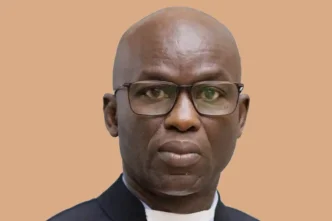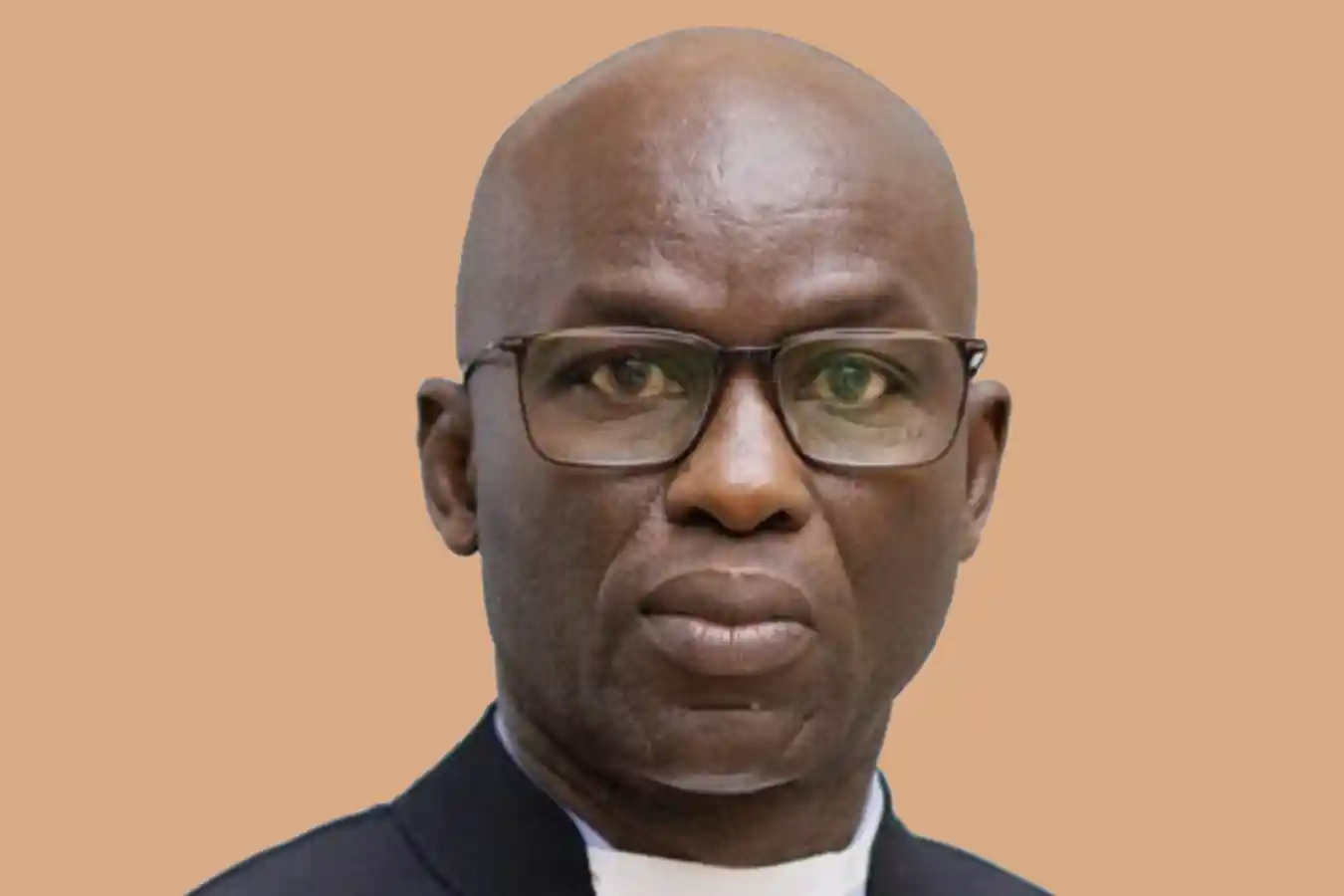The International Criminal Court (ICC) has rebuffed an attempt by former Philippine President Rodrigo Duterte’s legal team to disqualify two judges from presiding over his case on alleged crimes against humanity. The challenge, centered on the impartiality of Pre-Trial Chamber I Judges Reine Alapini-Gansou and María del Socorro Flores Liera, was dismissed by the ICC’s Office of the Prosecutor as lacking merit, intensifying the legal battle over Duterte’s controversial war on drugs.
Legal Challenge and ICC Response
The dispute arose when Duterte’s lead counsel, Nicholas Kaufman, filed a request on May 12, 2025, to disqualify Judges Alapini-Gansou and Flores Liera from the case. Kaufman argued that the judges’ prior involvement in authorizing the ICC investigation into Duterte’s anti-drug campaign in 2021, and their role in resuming the probe in 2023, compromised their impartiality. He claimed that their earlier rulings on jurisdictional matters suggested a predetermined stance, undermining Duterte’s right to a fair trial. “The recourse sought will preserve Mr. Duterte’s right to objective, impartial adjudication” Kaufman stated.
In a sharp rebuttal dated May 22, 2025, Deputy Prosecutor Mame Mandiaye Niang rejected the defense’s position. He argued that the request failed to challenge the inherent presumption of impartiality that judges carry. “Contrary to the Defense’s position, the judges have not ‘already predetermined the outcome of the jurisdictional dispute in [the Prosecution’s] favour’, and no objective observer would reasonably perceive bias on the part of the Judges based on their prior involvement in the deliberation and adjudication of the jurisdictional question in the Situation in the Republic of the Philippines” Niang asserted.
The ICC’s stance underscores a key principle of international law: prior judicial involvement in related procedural matters does not automatically equate to bias. Legal experts note that such challenges are not uncommon in high-profile cases, as defense teams often seek to reshape the judicial panel to their advantage. However, the threshold for proving bias remains high, requiring concrete evidence of prejudice rather than mere speculation.
Background of the Case
Duterte, who served as Philippine President from 2016 to 2022, faces allegations of crimes against humanity linked to his administration’s brutal anti-drug campaign. The policy, which he openly championed, aimed to eradicate illegal drug use through aggressive law enforcement tactics. Official government figures claim at least 6,000 individuals were killed during police operations under this initiative. However, human rights organizations estimate a far graver toll, with death counts ranging between 12,000 and 30,000 from 2016 to 2019 alone, including extrajudicial killings allegedly carried out with state sanction.
The ICC’s involvement began after mounting international pressure over the scale of violence. In 2021, Pre-Trial Chamber I, including Judges Alapini-Gansou and Flores Liera, authorized an investigation into the drug war, a decision that marked a significant escalation in scrutiny of Duterte’s policies. The probe was briefly suspended but resumed in 2023, culminating in Duterte’s arrest in Manila on March 11, 2025. He was subsequently transferred to the ICC detention facility in The Hague, Netherlands, where he remains pending trial.
Duterte made his first pretrial appearance on March 14, 2025, though he participated via video link due to logistical constraints. His confirmation of charges hearing is slated for September 2025, setting the stage for a landmark trial that could shape international jurisprudence on state accountability for human rights abuses.
Judicial Impartiality in International Courts
The challenge to disqualify Judges Alapini-Gansou and Flores Liera raises broader questions about judicial impartiality in international tribunals like the ICC. Unlike national courts, where judges may recuse themselves more readily due to local political pressures or personal conflicts, ICC judges operate under stringent guidelines to ensure neutrality. Their prior involvement in procedural rulings, such as authorizing investigations, is often seen as part of their mandate rather than evidence of bias.
Legal scholars argue that disqualifying judges based on prior procedural decisions could set a dangerous precedent, potentially allowing defendants to delay or derail cases by repeatedly challenging the court’s composition. “The ICC must balance the right to a fair trial with the need for judicial efficiency” said Dr. Elena Marquez, a Manila-based international law expert. “If every prior ruling is grounds for disqualification, no case would ever proceed.”
In Duterte’s case, the defense’s argument hinges on the judges’ role in determining jurisdiction—a contentious issue given the Philippines’ withdrawal from the ICC in 2019 under Duterte’s own directive. While the ICC maintains that it retains jurisdiction over crimes committed during the country’s membership, the defense contends that the judges’ earlier rulings on this matter prejudge the case’s merits. The prosecutor’s rejection of this claim suggests that the ICC views such procedural history as irrelevant to the judges’ ability to adjudicate fairly on substantive issues.
Political and Public Reactions
The legal wrangling at the ICC has reignited domestic debates in the Philippines over Duterte’s legacy. Supporters of the former president, who remains a polarizing figure, view the ICC case as a politically motivated attack on national sovereignty. Many argue that Duterte’s drug war, while harsh, was a necessary response to the country’s rampant drug problem. “He did what needed to be done to protect our communities” said Maria Santos, a vendor in Manila who credits Duterte with improving local security.
Critics, however, see the ICC proceedings as a long-overdue reckoning for systemic abuses. Human rights advocates, including groups like Human Rights Watch, have called for accountability not only for Duterte but also for state actors who executed the drug war’s violent policies. “This case isn’t just about one man; it’s about a culture of impunity that must end” said Carlos Reyes, a spokesperson for a victims’ advocacy group in Quezon City.
Politically, the case poses challenges for the current Philippine administration under President Ferdinand Marcos Jr. While Marcos has distanced himself from Duterte’s more extreme policies, his government has maintained a cautious stance on ICC cooperation, wary of alienating Duterte’s still-significant base of supporters. Analysts suggest that Manila’s response to the trial could influence its international standing, particularly with Western allies who have pressed for human rights reforms.
Global Implications of the Trial
Beyond the Philippines, Duterte’s trial holds broader significance for international justice. The ICC, established to prosecute war crimes, genocide, and crimes against humanity, has faced criticism for its perceived focus on African states while struggling to hold leaders from more powerful or geopolitically sensitive nations accountable. A successful prosecution of Duterte could bolster the court’s credibility as a truly global institution, demonstrating its capacity to address abuses in diverse contexts.
However, challenges remain. The ICC lacks enforcement power, relying on member states for arrests and cooperation. The Philippines’ withdrawal from the court complicates matters, as does Duterte’s domestic popularity among certain segments of the population. If the trial proceeds, it may also set a precedent for how the ICC handles cases involving state-sanctioned violence under the guise of law enforcement—a growing concern in multiple regions worldwide.
Legal observers note that the outcome could influence other high-profile investigations, including those involving leaders accused of similar abuses. “This isn’t just a trial of Duterte; it’s a test of whether international law can address state violence in a meaningful way” said Professor James Lin, an expert in international criminal law based in Singapore.
Looking Ahead
As the September 2025 confirmation of charges hearing approaches, the ICC’s rejection of Duterte’s bid to disqualify the judges signals that the court is unlikely to entertain further procedural delays. Yet, with jurisdictional disputes and domestic political tensions still unresolved, the road to a final verdict remains fraught with uncertainty. For now, the eyes of the world remain on The Hague, where a former president’s fate could redefine the boundaries of accountability for leaders accused of grave human rights violations.
In the Philippines, the case continues to stir deep divisions, leaving open the question of whether justice, as pursued by an international court, can resonate with a nation still grappling with the scars of its recent past.
















